English Edition

- By CNI
- Category: English Section
- Hits: 656
CNI News
6 February 2024
There were secessions from the Karen National Union (KNU) during the revolution and it caused a big challenge for the KNU, said Pado Saw Hla Tun, secretary-2 of the KNU.
He said that there were secessions from the KNU, being different from other revolutionary groups while he was talking about the experience of going through the revolution on 75th Anniversary Celebration of Karen Revolutionary Day.
" During the past 75 years of our revolution, Karen nationals always took part in the revolution vigorously for the liberation of Karen people, for the liberation of other ethnic people and for the establishment of democracy in Myanmar. During our participation in the revolution like this, there were many challenges. So many of our Karen people had to sacrifice their lives. There were several secessions within the KNU. We had a great challenge. The KNU was different from other revolutionary groups and the KNU experienced most secessions. The KNU had to overcome such challenges with an attitude of a mother." said Pado Saw Hla Tun.
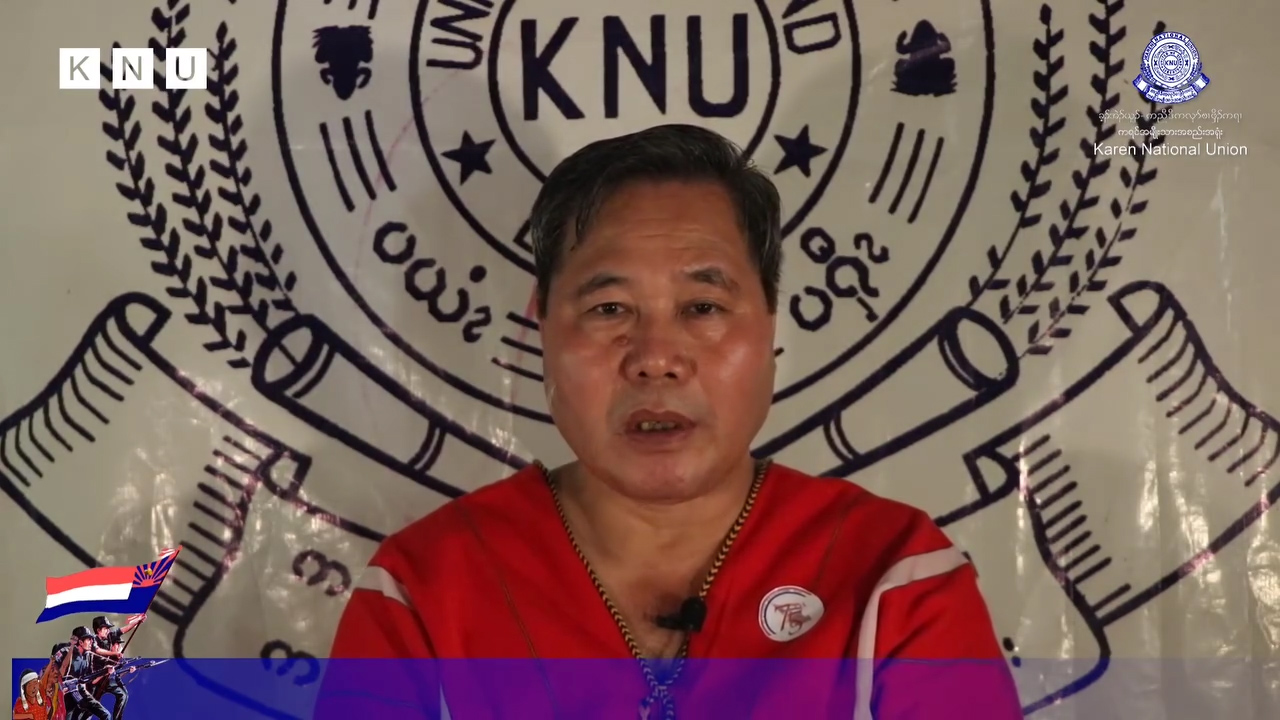
While seeing Pado Saw Hla Tun, secretary-2 of the KNU
Saw Nerdah Mya, former Commander in Chief of the Karen National Defense Organization (KNDO), announced that he had built the Kawthoolei Army on 16th July 2022 after being suspended from the KNU duties.
After that, battles broke out between the Kawthoolei Army and the Brigade-4 of the KNU after which the International Karen Organization (IKO) had to demand to stop fighting between the two sides as soon as possible.
The Democratic Karen Benevolent Army (DKBA) seceded from the KNU in January 1994 and made peace with the Tatmadaw. In the same way, the forces from the Brigade-7 of the KNU signed the peace agreement with the government in 2007 and formed the KNU/KNLA Peace Council.
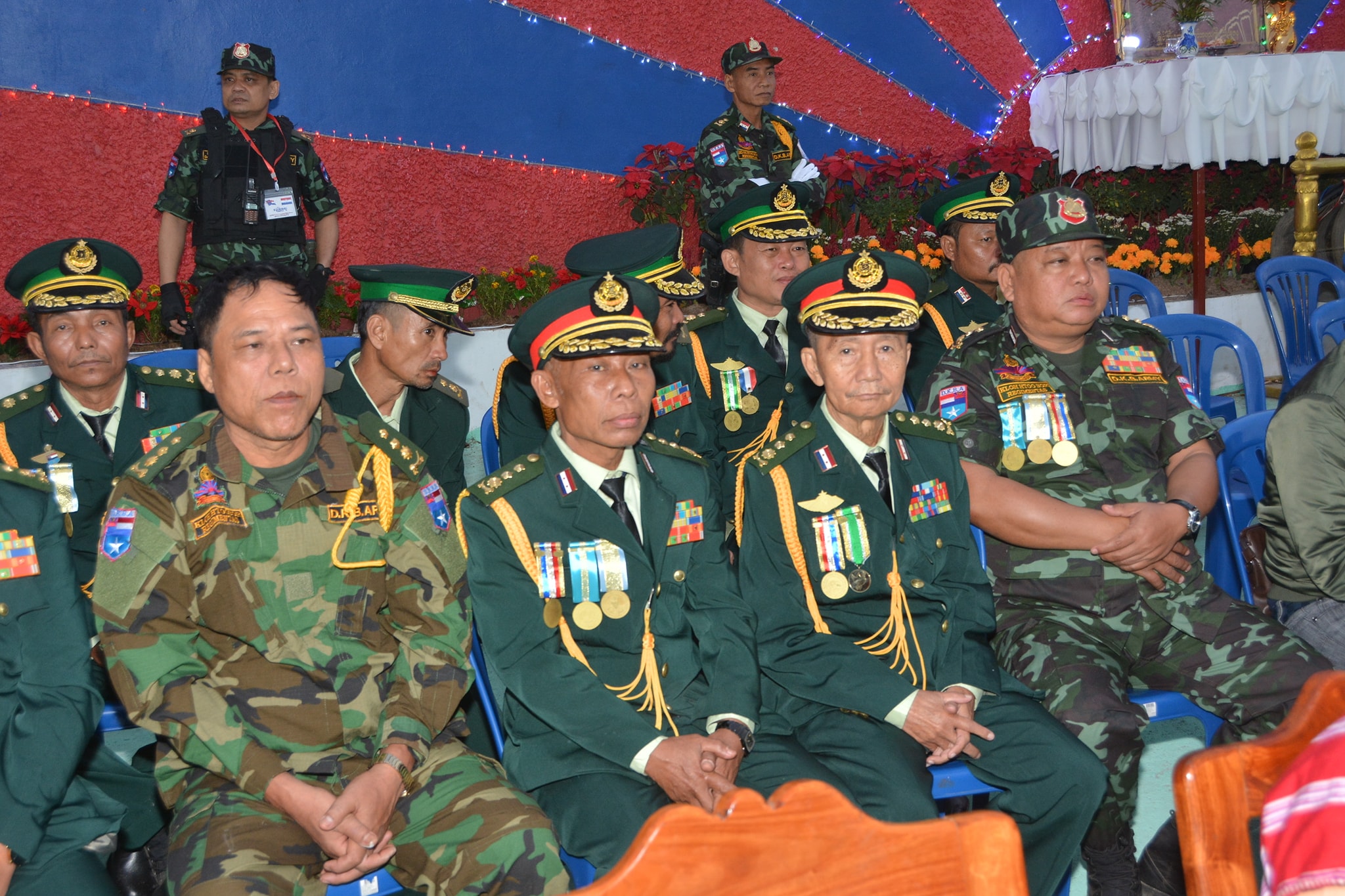
While seeing the leaders of the DKBA
Efforts were being made to re-unite the different Karen armed organizations, Mahn Pyi Aung Soe, chairman of the Karen National Democratic Party, told CNI News.
" Their attitudes are different from one another. Saw Nerdah Mya seceded from the KNU. Among the remaining 7 districts, 6th District is different from others and so is 1st District. The KNU/KNLA Peace Council, the DKBA and the Border Guard Force had tried to re-unite. Now they are still trying. But the result hasn't come out as yet." he said.
At present, there are many Karen EAOs and they are the KNU, the DKBA, the KNU/KNLA Peace Council, the Kawthoolei Army and the Karen State BGF led by Colonel Saw Chit Thu.

- By CNI
- Category: English Section
- Hits: 710
CNI News
5 February 2024
The cultivation of winter rice is between 50,000 and 100,000 acres and there has been an increase in the yield, according to farmers.
Because of the ability to sell the rain rice at a profitable price, the farmers used more inputs in planting winter rice.
So, although about 70 baskets of rice paddy could be produced from an acre in the past, more than 100 baskets can be produced at present, U Thein Aung, chairman of the Farmers Development Association, told CNI News.
" Winter rice is grown in September and October. The cultivation area of winter rice in three townships _ Kyaunggon, Yegyi and Thabaung _ might be between 50,000 and 100,000 acres. The yield has increased as well. Although about 70 baskets of winter rice could be produced from one acre in the past, but now more than 100 baskets can be produced. The farmers have grown more winter rice," he said.
The winter rice is grown most in Yegyi, Kyaunggon, Thabaung and Pathein Townships reportedly. However, because the irrigation system in those regions was shallow, during high tide, the water availability in the irrigation system was low, said the farmers.
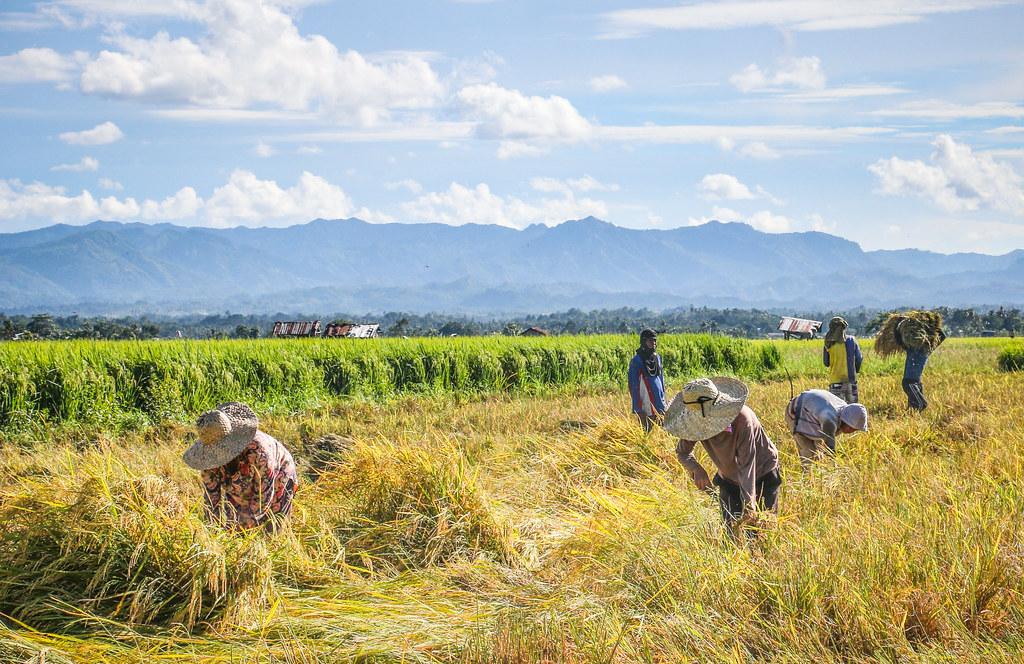
While seeing paddy fields
Because the rice paddy could be sold at a profitable price, farmers in some townships grow rice paddy again that could be harvested within 90 days, U Kyaw Aye, a farmer from Ayeyarwady Region, told CNI News.
" In the previous years, farmers didn't continue to grow rice. But now it's not like that anymore. As soon as the winter rice is harvested, they go on growing rice. They can harvest rice in April and May. They are cultivating rice with enthusiasm because they can sell rice at a profitable price. Many farmers have grown winter rice. The government needs to make a list of farmers who grow winter rice and should support them." he said.
There are 3,700,000 acres of rainfed rice cultivation, 100,000 acres of winter rice and 1,500,000 acres of summer rice in Ayeyarwady Region, according to the agricultural department.
At present, the price of 100 baskets of Shwebo Pawsan rice paddy is 2,600,000 kyats, and Ayeyarwady Pawsan is 2,400,000 kyats and other rough rice paddy such as Manaw Thukha, Sinthwe, Ayer Min, Pakham, Zeer, Bay Gyar and so on are from 1,800,000 to 1,900,000 kyats.

- By CNI
- Category: English Section
- Hits: 684
CNI News
5 February 2024
Although the air ticket price from Yangon to Rakhine is not expensive, the price of air ticket from Rakhine to Yangon has increased by three times, Rakhine locals who bought air tickets told CNI News.
The price of air ticket from Rakhine to Yangon has risen to more than 300,000 kyats now although the price was only 200,000 kyats or so in the past.
However, brokers are asking those who want to left for Yangon from 500,000 to 800,000 kyats, Ko Soe Khine who bought an air ticket told CNI News.
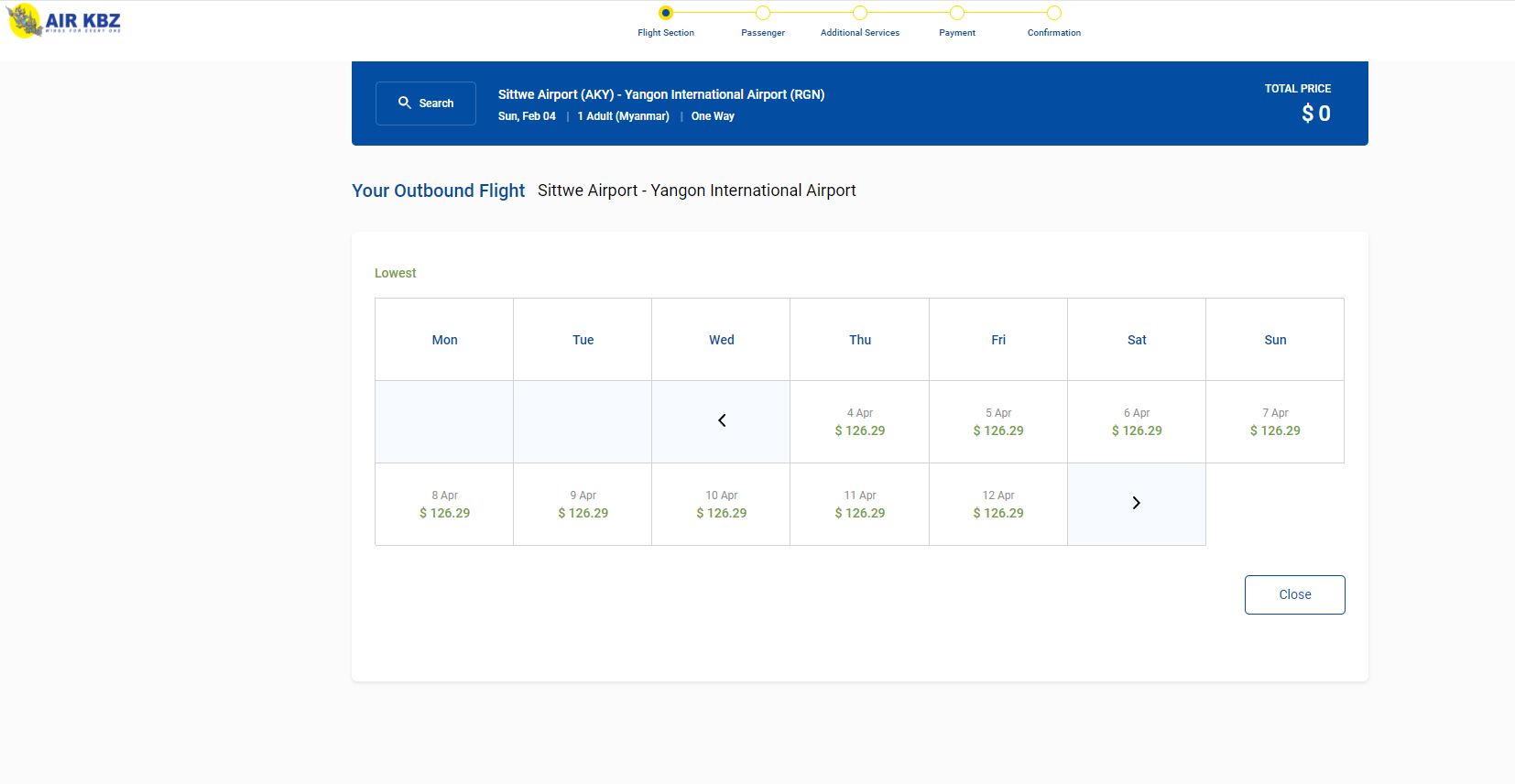
While seeing the Yangon-Sittwe air ticket price and the departure timetable
" Brokers are asking 700,000 to 800,000 kyats an air ticket. They have bought air tickets in advance and sell them after changing names. The situations in Rakhine State are worrisome. So, many Rakhine locals want to left for Yangon. Tickets are not available when the examinations of basic schools finish. There's a cargo office where the air tickets might be available if you want to leave within a few days to come. The price of air ticket is not so expensive there. But brokers have bought tickets in advance and they ask 550,000 to 600,000 kyats an air ticket although legal price is just 350,000 kyats. Because regular tickets are available only on 20th or 22nd March, those who want to leave ASAP buy air tickets how much expensive they are." he said.
Those who wanted to go regularly could buy air tickets starting from April, people, who went to inquire about buying air tickets, told CNI News.
In buying air tickets from Yangon to Sittwe for April, the price of an air ticket is only 190,000 kyats. However, the price of an air ticket from Sittwe to Yangon is more than 200,000 kyats.
The relevant state council should handle strictly air ticket price speculation and a regular price should be designated, Ma Mee Mee, a Sittwe resident, told CNI News.
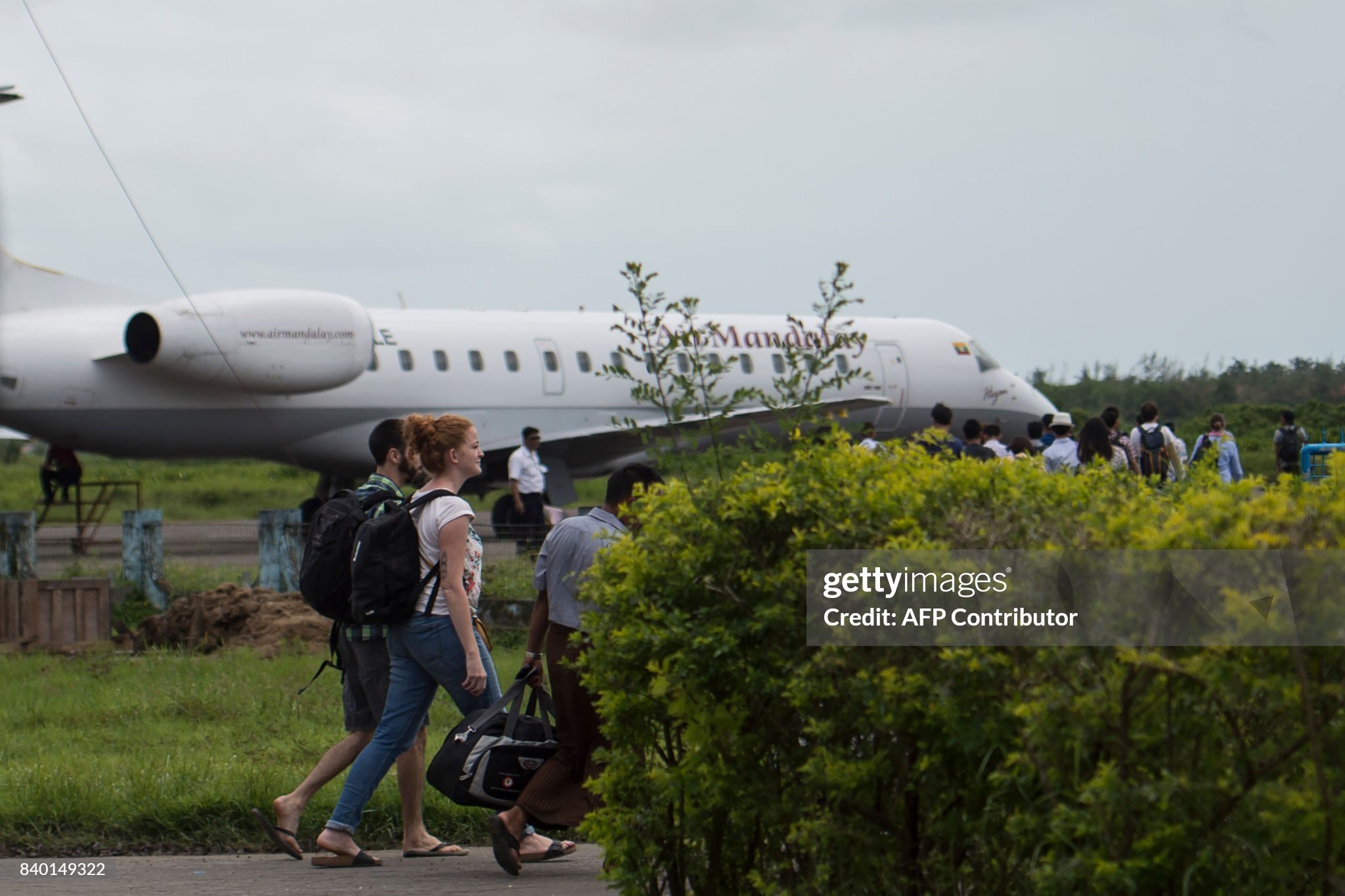
While seeing tourists who will travel by plane
" The current government should inquire if air ticket sellers are officials or brokers, I think. The current government should tell all the agents that sell air tickets what should be done or what should not be done. When the two flights go, air tickets should be sold depending on the current situation. If we have to pay 190,000 kyats an air ticket when we buy in advance for April, we should get an air ticket at 190,000 kyats now, I think. How much is the price of an air ticket? Is it 300,000 or 190,000 or 200,000 kyats? The government should designate and control the price. The government should summon the agents and discuss it, I think." she said.
Rakhine locals have been buying air tickets in advance since December 2023 and there were tricks in relation to selling air tickets according to locals.
Although the flight going to Sittwe from Yangon was not full of passengers, the flight going to Yangon from Sittwe was full of passengers, according to those close to airports.

- By CNI
- Category: English Section
- Hits: 577
CNI News
5 February 2024
The Kachin Independence Army (KIA) and the People's Defense Force (PDF) are expanding territory by forcing civilians to steal wood from the Shanni Nationalities Army (SNA)'s territory, an official from the SNA told CNI News.
The KIA/PDFs and businessmen cooperated and asked local civilians in Banmauk Township to steal wood from Banmauk region within the SNA territory, said some of the locals.
Because the jobs are scarce due to the current political situation, they accepted the job of chopping wood and but they did not know that they would have to chop wood in the SNA territory, said one of the people who were arrested by the SNA when they came to steal wood.
" When Ko Tu, a friend of ours, phoned and asked us if we would accept that job. We accepted that job because we had no jobs and our families' livelihoods are not okay. And then, we went to Banmaw to take money." he said.
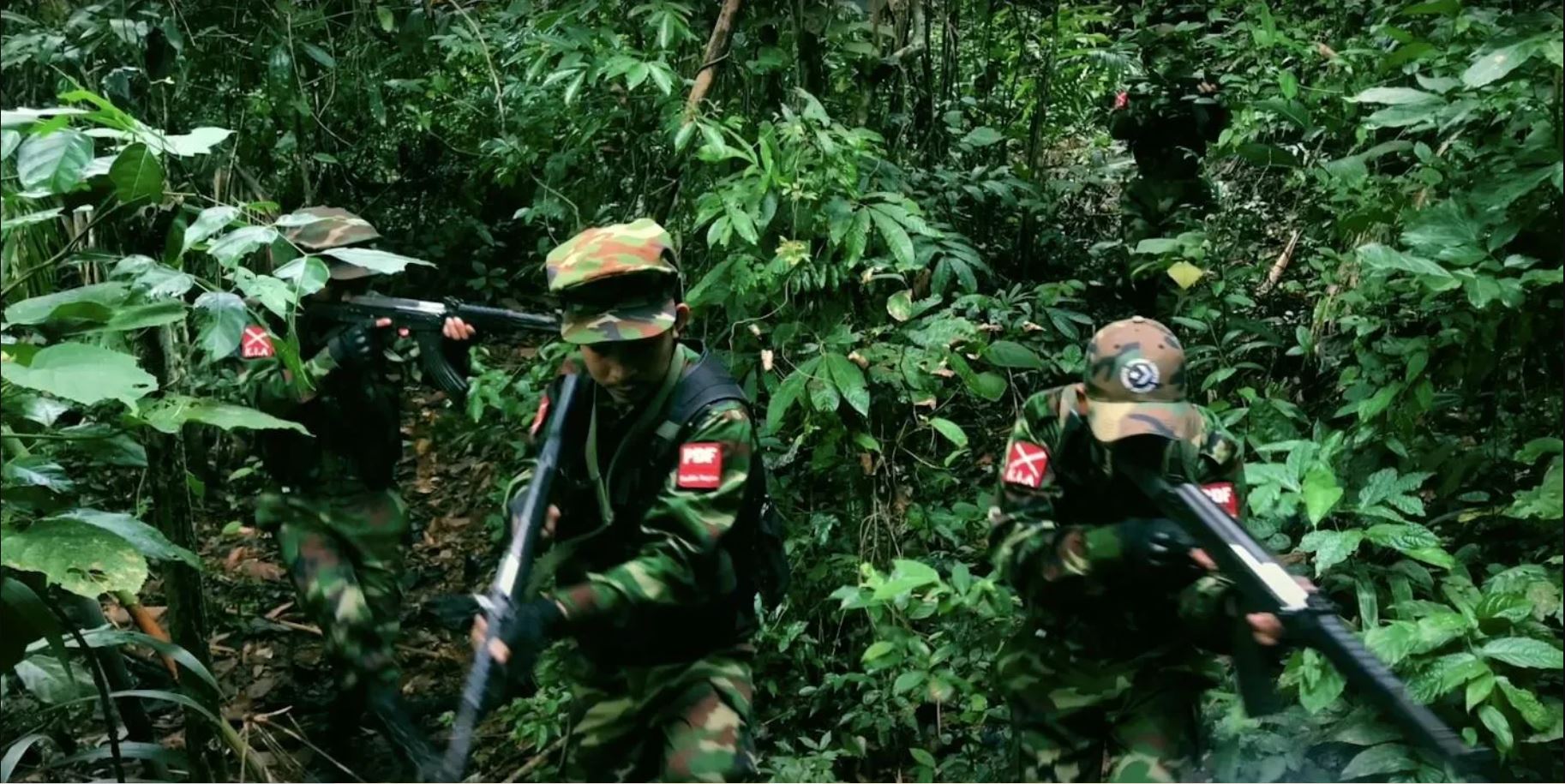
While seeing the KIA/PDF joint force
Those who were forced to smuggle wood out by the KIA/PDF and businessmen were arrested in Banmauk Township that is controlled by the SNA's Brigate-614. Those arrested contained 16 men, 5 women and 4 children including a baby reportedly.
The place where wood was smuggled out was not easily accessible to people and the paths were not good.
So, When the workers told the businessmen that they wanted to go home, the businessmen replied that they had given the workers' national registration cards and CVs to the KIA/PDFs as well as that the workers had been forbidden to pass through, said a person who was arrested.
" They told us that the road to the workplace was good and the workplace was not so distant as well. And we were told we had to work as soon as we got there. But when we saw for ourselves, the road was not good. So, when we told the businessmen that we wanted to go home, we were not allowed to go home. When we told them if we could go home after paying the debt, they replied we could. So, we went to the workplace. But we were arrested after sleeping one night there." he said.
About 200 KIA/PDF joint forces attacked a frontier camp of the SNA in Banmauk Township in August 2023 and at present, the joint forces often launch offensives.
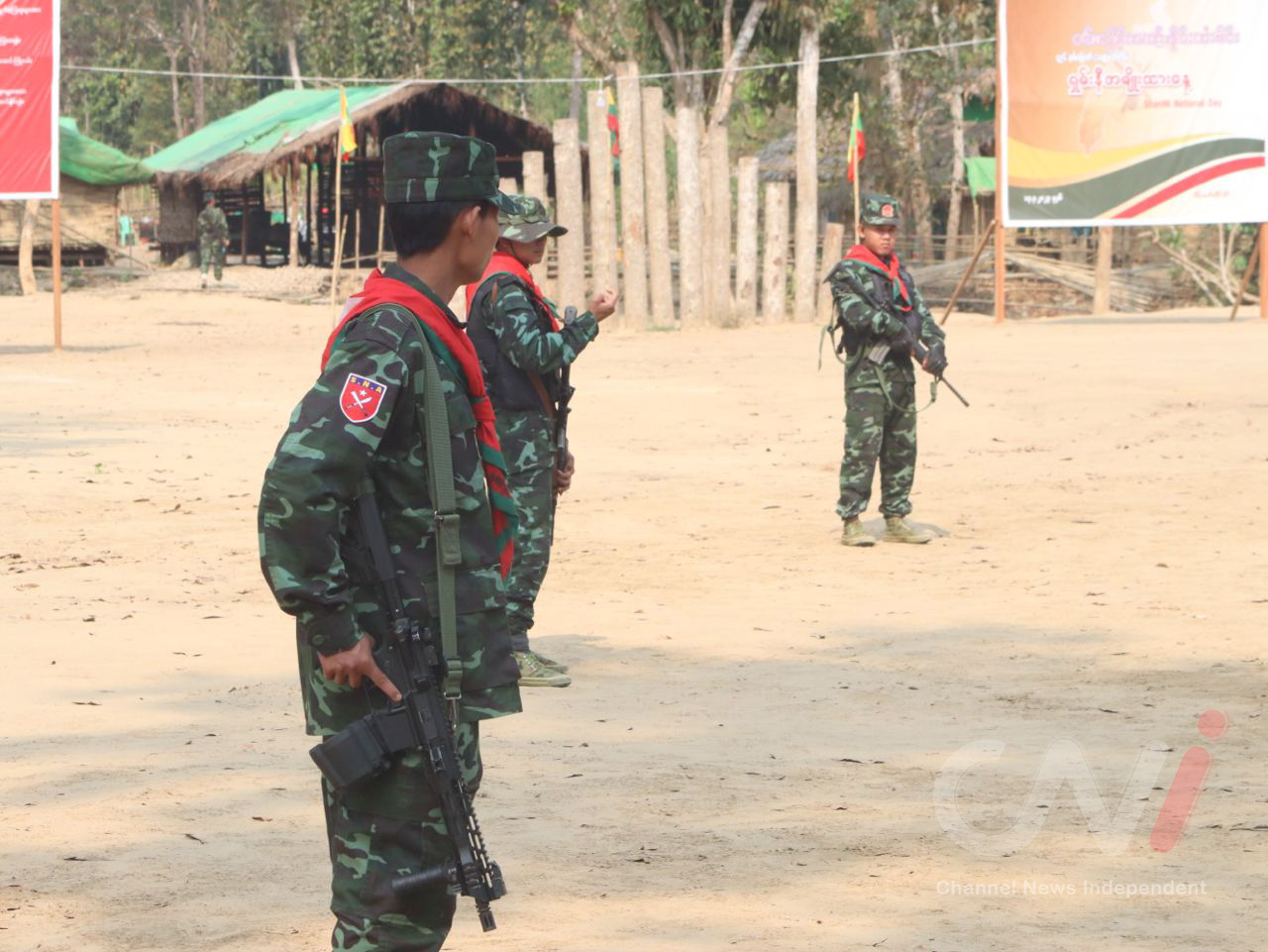
while seeing the SNA force
" We accepted their offer and went there because we had no jobs. They told us that everything was just fine and we would have to work as soon as we got there. But we had to wait there nearly one month. We couldn't wait any longer. So, when we told them that we wanted to go home, they didn't accept. When we went and see the road and workplace on motorbikes, the workplace also is very distant. It would not be convenient if we worked with our families. When we told them that we wanted to go home, they replied that the gates had been closed. They did not allow us to go home. When we told them, we would give the money back, we would go home. We were not allowed. They had given the numbers of our NRCs to every PDF gate." said a person who was arrested.
The SNA had told those arrested not to steal wood within the controlled area of the SNA, and all those arrested would be released, and they had been looked after for the time being , said an official from the SNA.
The SNA is an EAO that is trying to build Shanni State that will contain Mawlike, Kalay, Khamti, Homalin, Katha and Tamu Districts in Sagaing Region as well as Banmaw, Myitkyina, Mohnyin districts in Kachin State.

- By CNI
- Category: English Section
- Hits: 608
CNI News
3 Feb 2024
More and more Myanmar nationals in Malaysia have asked philanthropic associations for help than last year, Malaysia-based philanthropic associations told CNI News.
Requests from Myanmar nationals for help contained to help them with places to stay, with jobs, with foods and with health issues, Ko Thet, chairman of the Lovely Hearts Philanthropic Youths Blood Donors Organization, told CNI News.
" There have been requests for help almost every day since operaci checks and arrests. Some have no places to stay. Some want to go to clinics, but it's difficult to go there if you don't have any documents. Some don't have jobs for the time being. Some are cheated by brokers. Those cheated were abandoned in oil palm plantations. Some have to be staying under bridges. There are also people who are suffering in far away places such as Penang, Johor and Malacca. We can't go to so distant places to help them." he said.
Philanthropic associations have to go and guarantee for those who want to see physicians at the hospitals and clinics and to give places to those who have no places to stay at the offices of the associations and shops of acquaint ants or friends reportedly.
Moreover, if those arrested were sent to Malaysian immigration department, they would be sentenced to three month imprisonment reportedly.
More requests for help from Myanmar nationals might be because there have been an increase in the number of foreign workers than 2022, Ko Naing Lin, general advisor of the Dana Kusala Funeral Service Association, told CNI News.
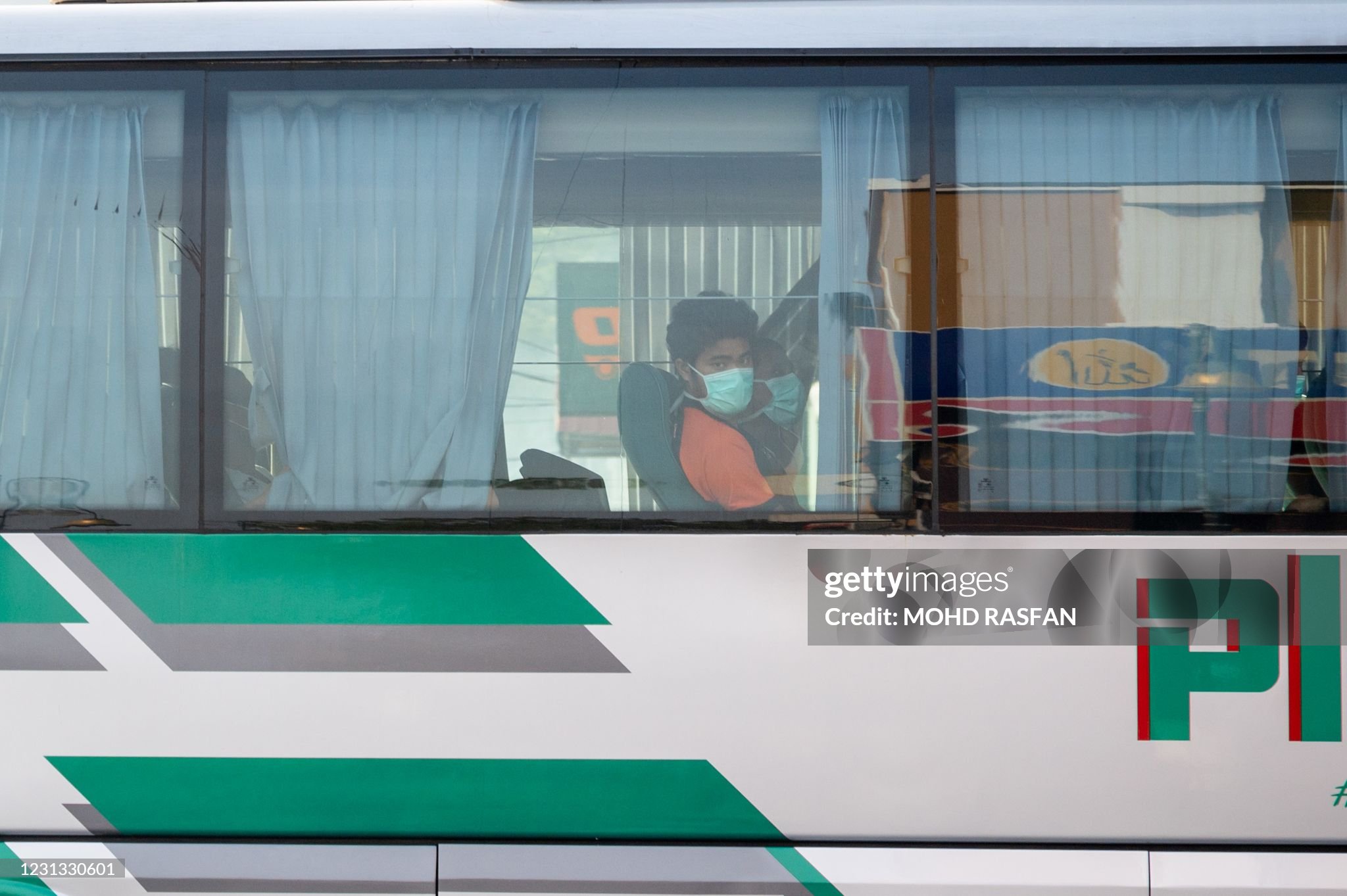
" Because the population has increased, the arrests have increased as well. And then, it's also difficult to find jobs. Those who ask for help have increased. Some ask us to help find the jobs. Some have no permits and their employers can't accept them anymore. We haven't helped those arrested. Sometimes, when we help those who are inspected by the police as interpreters." he said.
Some of the undocumented Myanmar people were arrested while they were staying in the shops and offices opened by Myanmar citizens.
So, some philanthropic associations have suspended helping Myanmar people who have found it difficult to stay while the arrests are rampant and the associations will help them again only when the arrests have been reduced.
However, those who were finding it difficult might ask for help anytime, said philanthropic associations.

- By CNI
- Category: English Section
- Hits: 548
CNI News
3 February 2024
Rakhine locals were suffering from the instability caused by the actions of the Arakan Army (AA), said Sr-Gen Min Aung Hlaing, chairman of the State Administration Council (SAC) at the meeting of the National Defense and Security held on 31st January 2024.
The AA started attacking the Donpike police outpost of the Tatmadaw on 13th November 2023 seven months after Cyclone Mocha, he said.
“ AA insurgent group is making the region unstable and most of the Rakhine nationalities are suffering from the instability. Now is the time when basic education schools and universities are educating in the 2023-2024 academic year. When the academic year started, 573,000 students were learning. But now, due to the terrorist threats of the AA insurgent organization, 279, 392 students only are studying in the basic schools. Because over 48.76 percent has been absent, local students suffer from the negative effects of the AA insurgent group, affecting their future." said Sr-Gen Min Aung Hlaing.
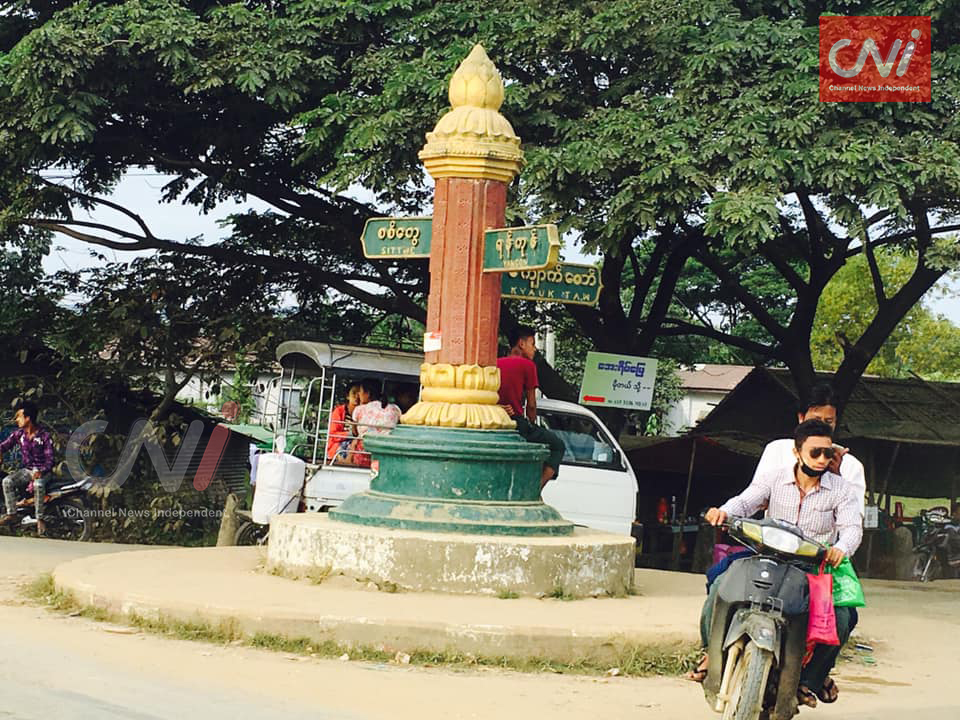
While seeing an intersection in Rakhine State
Only when everlasting peace could be built in Rakhine State, could a good future life be passed on to the local next generations. So, the Tatmadaw was carrying out for the regional stability, he said.
The battles resumed between the Tatmadaw and the AA on 13th November 2023 and roads have been closed since then. Because the roads have been closed, trades have been interrupted and commodity prices also have gone up.
Myanmar political problem should be solved practically and a situation that could be solved practically should be created, U Thar Tun Hla, chairman of the Arakan National Party (ANP), told CNI News.
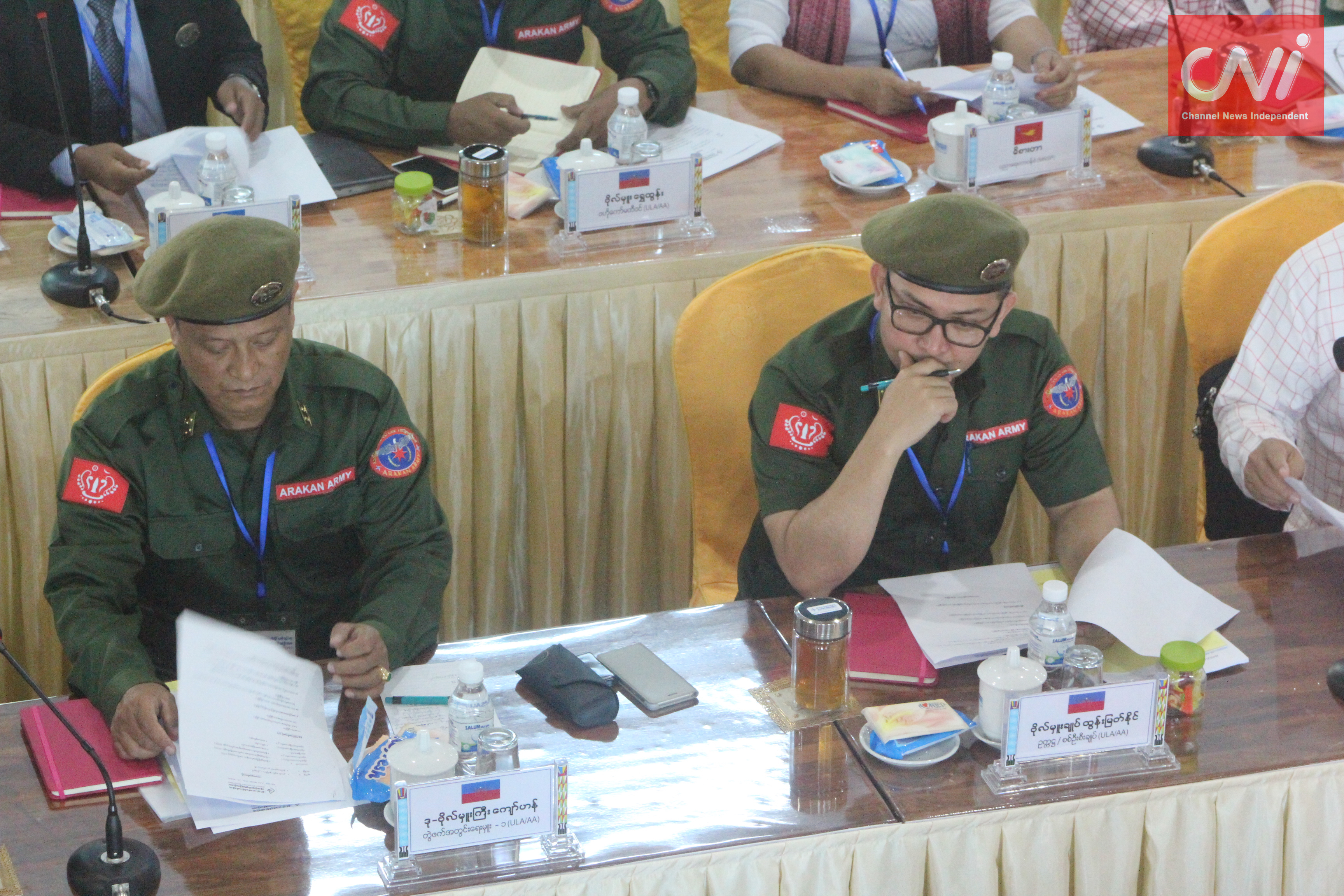
While seeing Maj-Gen Tun Myat Naing, leader of the AA
"The current battles in Myanmar are a political problem. They are the consequences of the political problem that has arisen since Myanmar gained her independence. The political problem is that rights to self-determination and self-governance of ethnic people were lost. We need to work hard on the processes that will be solved by political means. Because of the situation that was just talk, battles are severely taking place like this, I think." he said.
Over 500,000 Local people have fled to safety due to the battles between the Tatmadaw and the AA started again on 13th November 2023 reportedly.
The battles are breaking out between the Tatmadaw and the AA in Sittwe, Kyauk Phyu, Ranbye, Myebon, Taung Gote, Thandwe, Maungdaw, Buthidaung, Rathedaung, Kyauktaw, Pauktaw, Minbya, Mrauk U and Ponnagyun Townships in Rakhine State as well as in Paletwa Township in Chin State.

- By CNI
- Category: English Section
- Hits: 1012
CNI News
2 Feb 2024
A system in which rupees and kyats can be used in direct paying could be started in February, said the Central Bank of Myanmar.
There will be a decline in the need of US dollars in paying for the products including medicine mainly imported from India by implementing the system.
Moreover, there will be advantages such as easier payment, smooth flow of goods and better bilateral relation. India-Myanmar border trade could not be opened up to now. So, the system would not take effect for the time being, U Ne Win Soe, In charge of the Region, Myanmar Trade Promotion Organization ( Ayeyarwady Region), told CNI News.
" Some say the current situation is convenient. Others say it will be more convenient if rupees can be directly exchanged to kyats. It's 50-50. Because dollars are not needed in the middle anymore. It's more convenient if it is realized. But how will it be implemented due to territorial instability. I don't think it will work because of instability on this side." he said.
However, the direct paying system with Indian rupees and Myanmar kyats could not be used at the maritime trade, said traders.
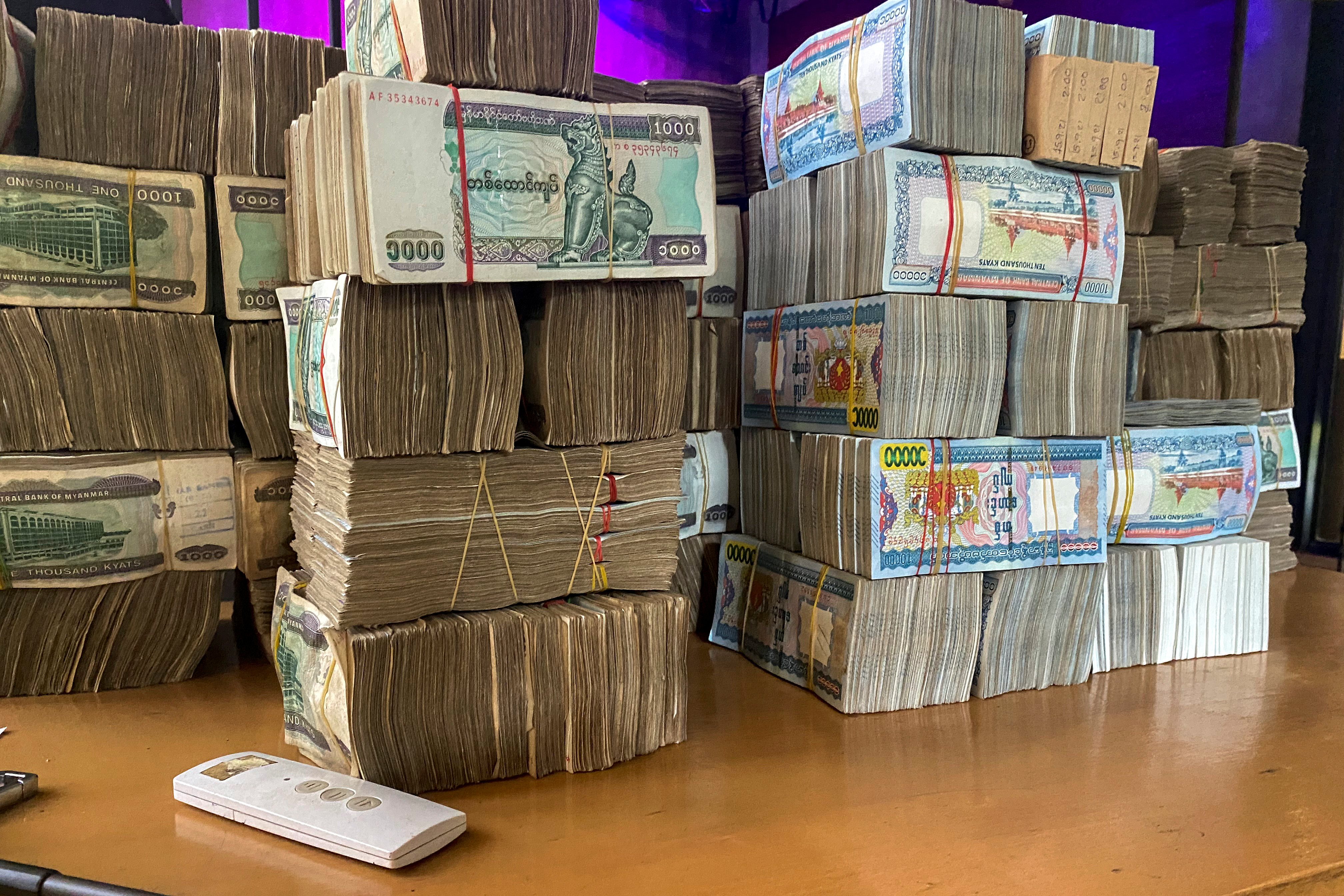
Myanmar kyats
The regulations regarding payment for trade would be cooperated by the Union of Myanmar Federation of Chambers of Commerce and Industry (UMFCCI) and the Indian Traders Association, according to the Central Bank of Myanmar.
However, there is a gap between the Central Bank's exchange rate and market rate at the border trade. So, the price of Myanmar kyat was needed to be stable, U Khin Maung, a border trader, told CNI News.
" Mainly, it's necessary to have territorial stability and make the price of Myanmar kyat stable. The price of Myanmar kyat is declining so much. At the currency exchange of the border trade, the price designated by the Central Bank is different from the market price. So, traders are worried that they will make a loss." he said.
The authorized banks are the UAB Bank and the CB Bank on the Myanmar side for the direct payment with rupees and kyats and on the Indian side, the Punjab National Bank reportedly.

- By CNI
- Category: English Section
- Hits: 1155
CNI News
2 Feb 2024
U THein Soe, chairman of the Union Election Commission,was retired and he was replaced with U Ko Ko, the State Administration Council (SAC) stated on 31st January 2024.
U Thein Soe served as the chairman of the UEC from 2021 to 31st January 2024.
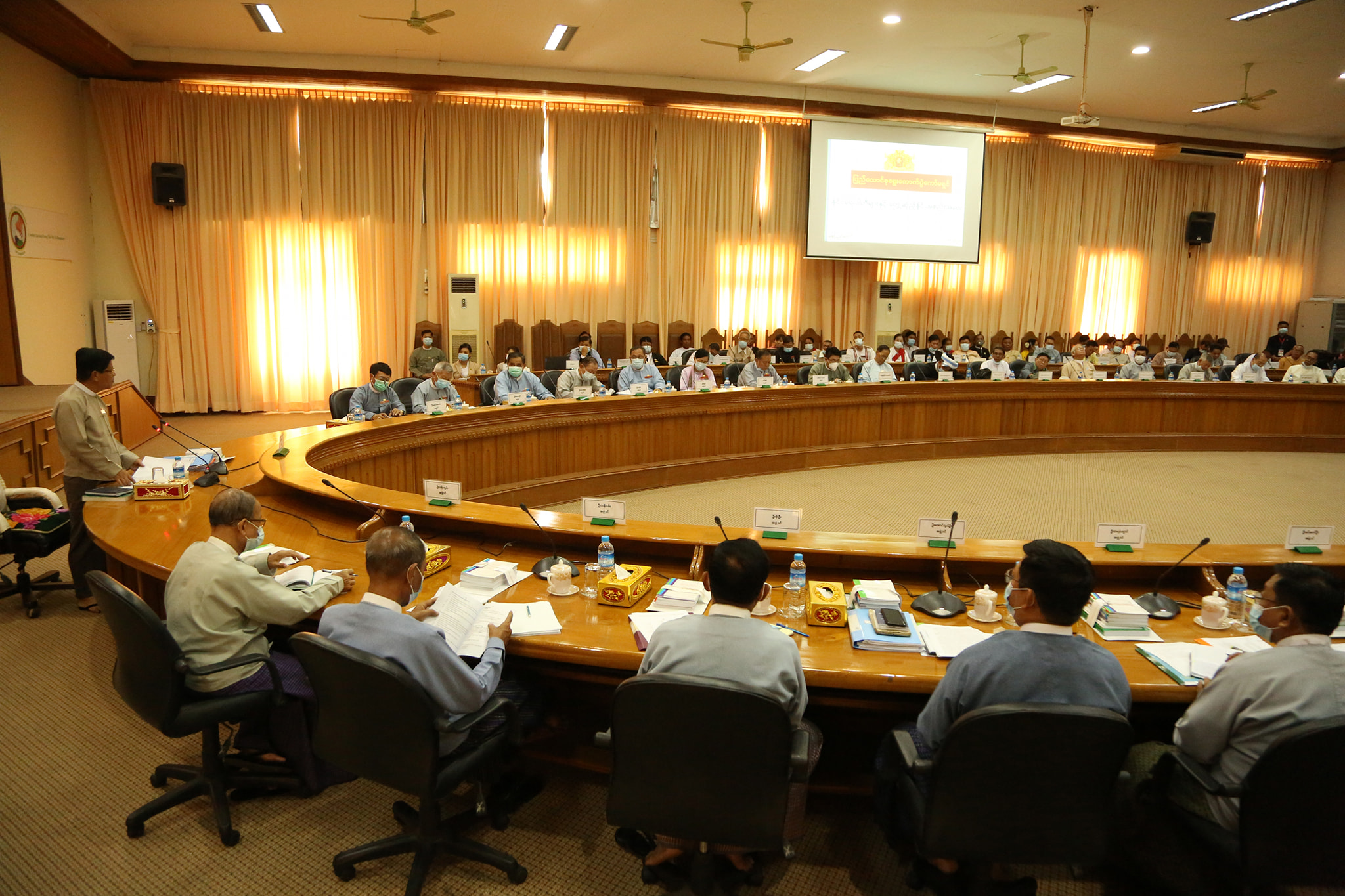
While U Thein Soe was meeting with political parties
The law on registration of political parties was enacted on 31st January 2023 and political parties were forced to re-register.
According to the law, a political party that will compete all over the country must have 165 offices and 100,000 members, which was criticized.

- By CNI
- Category: English Section
- Hits: 533
CNI News
1 Feb 2024
The presence of disloyal armed forces destroying the country was greatly dangerous to the country, said Sr-Gen Min Aung Hlaing, Commander in Chief of the Tatmadaw.
He said the above at the meeting (1/2024) of the National Defense and Security Council held 31st January 2024.
" While the country is being built to become a union based on democracy and federalism, the presence of unfaithful armed forces that are destroying the country and worsening the conflicts is greatly dangerous to the country." said Sr-Gen Min Aung Hlaing.
The Karen National Union (KNU), an ethnic armed organization, has trained and supported the People's Defense Force (PDF) troops.
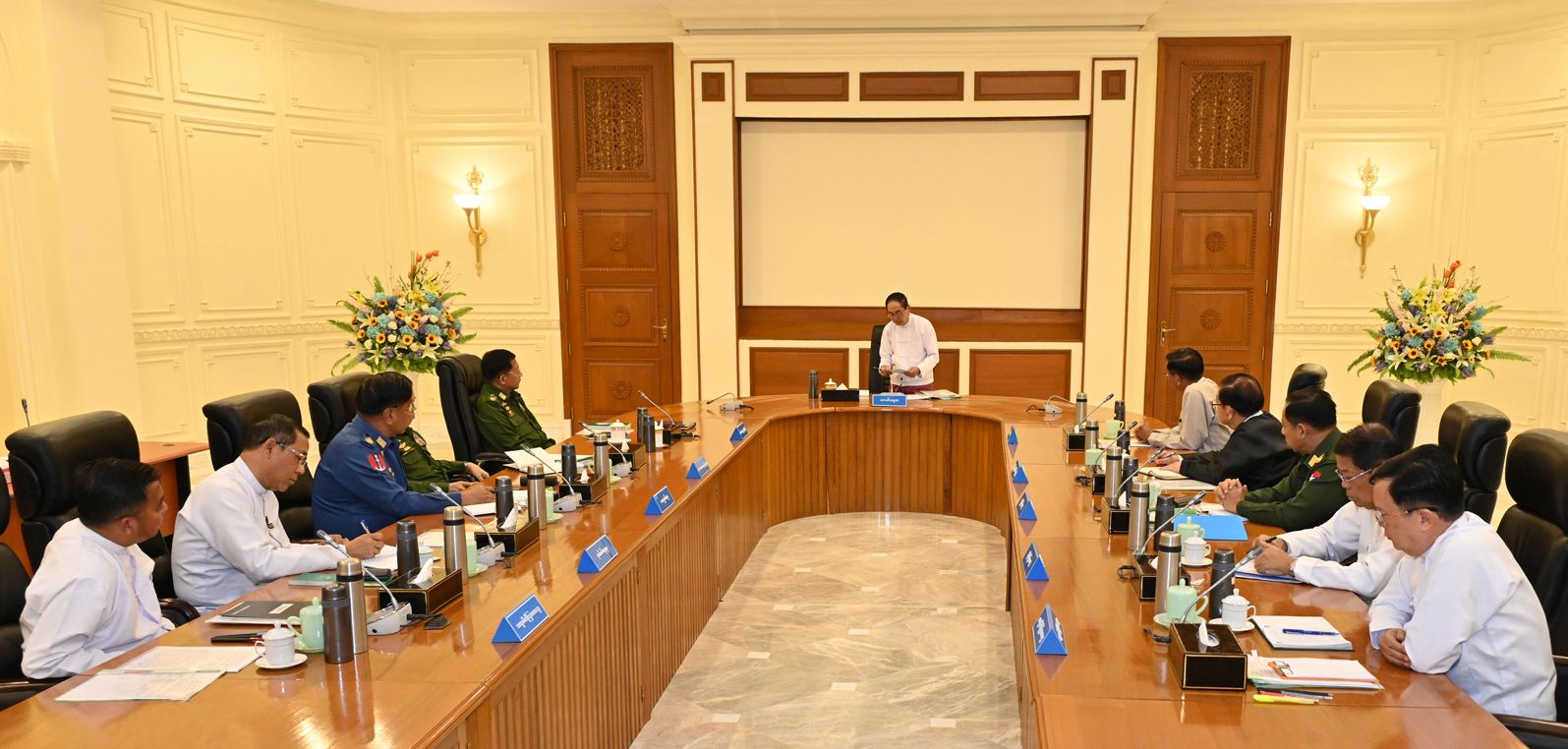
And then, they attacked the Tatmadaw's military camps. Moreover, the Karenni National Progressive Party (KNPP) and the PDF waged terrorist attacks. And a drug smuggling gang including the Arakan Army (AA) was identified and arrested.
Next, the Chin National Front (CNF) is conducting terrorist acts in Chin State in collaboration with the Chin Defense Force (CDF). In addition, the Myanmar National Democratic Alliance Army (MNDAA) and the Ta'ang National Liberation Army (TNLA) attacked border trade routes including the Tatmadaw's military camps, he said.
However, he didn't mention the disloyal armed groups by name. The Kachin Independence Army (KIA), the Shan State Progressive Party (SSPP) and the Karenni National Progressive Party (KNPP) have supported so-called PDFs and are conducting terrorist acts, said Sr-Gen Min Aung Hlaing.
Battles are severely ongoing between the Tatmadaw and armed groups including the KIA, TNLA, MNDAA, AA, KNU, CNF, KNPP, PNLO and ABSDF. And the Tatmadaw is fighting with the PDFs that are being supported by the EAOs.



